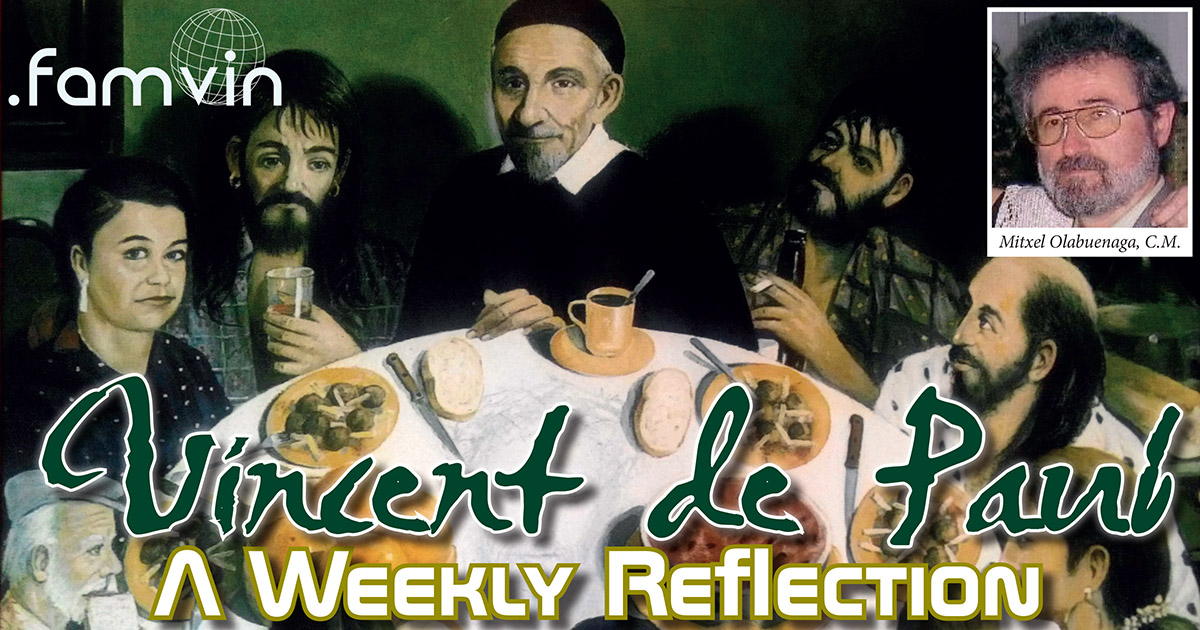“God is an abyss of gentleness, a sovereign, eternally glorious being, an infinite good that embraces all good; everything in Him is incomprehensible. Now, the knowledge we have, that God is above all understanding, should suffice for us to have Him infinitely esteemed. And that esteem should cause us to annihilate ourselves in His presence and to speak of His Supreme Majesty with a great sentiment of humility, reverence, and submission; and we’ll love Him in proportion to our esteem for Him. This esteem and love will give us a constant desire to do always His holy Will, to apply ourselves earnestly to do nothing against it, to distance ourselves far from worldly things, and will cause us to disdain earthly goods.”
Vincent de Paul (CCD:XII:94).
Reflection:
- Closeness to God can not make us believe that we are at his height because, as Saint Vincent says, “he is above all understanding.” Given this impossibility, only one posture is possible: the abasement, confusion, the emptiness promising a better future. That “self-annihilation” should not be, moreover, an obstacle to appreciate Him infinitely, to appreciate His sweetness (profound), sovereignty (eternal) and kindness (infinite).
- Having arrived at this situation of abasement, we still have, as fruit of appreciation, “to speak of His supreme majesty,” that is, to communicate to others the experience: a situation experienced by the disciples of Jesus on the mountain, in the transfiguration, with its tents and other paraphernalia. And for this, it is necessary, according to St. Vincent, to practice three virtues, three spiritual keys: humility (which makes us human), reverence (which makes us respectful) and submission (which commits us to God’s plan).
- These three virtues, that lead us to desire to do His will, can only come from a deep love for God. Only from this love, unconstrained and solid, is it possible to answer with “Thy will be done,” “not mine but thy will be done.” Only from this love we can understand the attitude of Mary and Jesus. Because ultimately, true love (in all its dimensions) is based on two pillars: “being with” and “allowing ones self to be influenced by”… All to open up (“to go down the mountain”) to others the shared experience of God.
- However, in this process of “experience-mission,” we must be attentive to the authenticity of the message. “Noises” are more than abundant and can distort (when not adulterating) the will of God. It may sound like a cliché, but it is worth repeating with St. Vincent that the will of God does not always coincide with earthly things and goods. And, perhaps, here we find the most serious difficulty in seeing, judging and enacting the will of God. The road to improvement is broad but it inexorably needs a deep and rigorous discernment session (alone or, better, together).
Questions for dialogue:
- Have we had any profound experience of encounter with God?
- With what dispositions am I prepared to achieve this encounter?
- Am I able to overcome the ropes that bind me to earthly goods?
- Is it the fact that our communities “plant tents,” forgetting to go down to the people?
Mitxel Olabuenaga, C.M.
![]() Mitxel.OlabuenagaOrnes
Mitxel.OlabuenagaOrnes








0 Comments